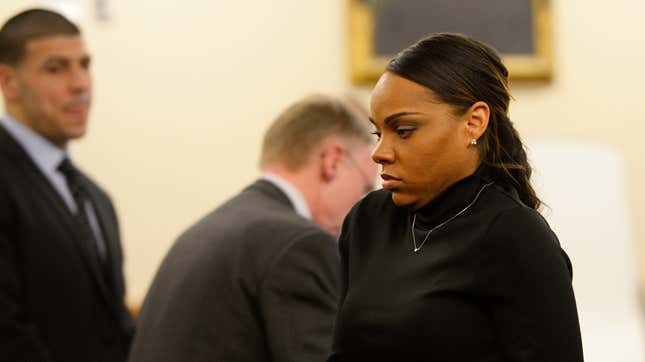Shayanna Jenkins-Hernandez Wanted Nothing to Do With the Aaron Hernandez Docuseries
Latest

On Wednesday, Shayanna Jenkins-Hernandez appeared on Good Morning America to discuss Killer Inside: The Mind of Aaron Hernandez, a Netflix docuseries about her former fiancé Aaron Hernandez, the New England Patriot tight end who was convicted of murdering Odin Lloyd in 2015. The docuseries tells Hernandez’s story from his teen years to his death by suicide in prison and includes stories from people who knew him and former teammates. One of the more surprising revelations was the claim by people who knew Aaron prior to signing with the Patriots that Hernandez, who had a child with Shayanna, may have been gay or bisexual.
-

-

-

-

-

-

-

-

-

-

-

-

-

-

-

-

-

-

-

-

-

-

-

-

-

-

-

-

-

-

-

-

-

-

-

-

-

-

-

-








































